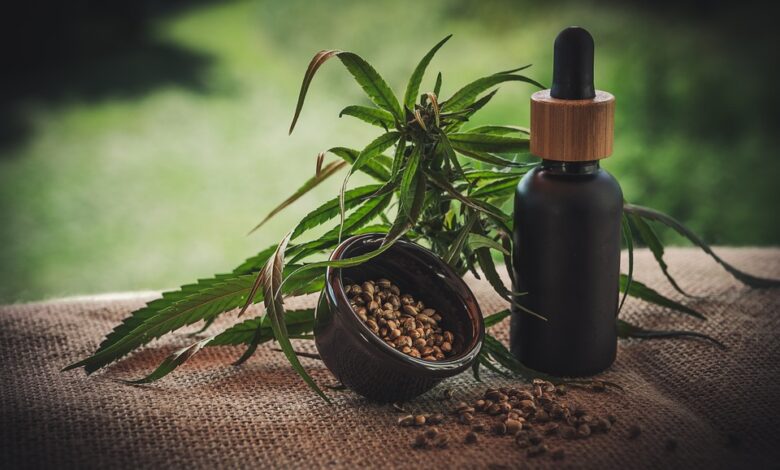Exploring the Health Benefits of Delta 9 THC: What You Need to Know

Delta 9 THC, short for delta-9-tetrahydrocannabinol, is one of the most well-known and studied cannabinoids found in the cannabis plant. It is the primary psychoactive compound that is responsible for the “high” associated with marijuana use. However, in recent years, there has been a growing interest in the potential health benefits of delta 9 THC, leading to an increase in research and public curiosity about its therapeutic properties.
In this article, we will explore the health benefits of delta 9 THC, its potential uses, and what you need to know about this fascinating compound.
What is Delta 9 THC?
Delta 9 THC is a cannabinoid found in the resin of the cannabis plant. It is one of over 100 cannabinoids that have been identified in cannabis, and it is known for its psychoactive effects. When consumed, delta 9 THC binds to the cannabinoid receptors in the brain and central nervous system, leading to feelings of euphoria, relaxation, and altered perception of time and space.
While delta 9 THC is primarily known for its recreational use, researchers have also been investigating its potential therapeutic properties. In recent years, there has been a growing interest in the potential medical applications of delta 9 THC, leading to the development of cannabinoid-based medicines and treatments.
Health Benefits of Delta 9 THC
1. Pain Relief: One of the most well-known health benefits of delta 9 THC is its ability to relieve pain. Studies have suggested that delta 9 THC can reduce pain perception by interacting with the body’s endocannabinoid system, which plays a key role in regulating pain sensation. This makes it a potential option for individuals suffering from chronic pain conditions, such as arthritis, neuropathic pain, and migraines.
2. Appetite Stimulation: Another well-documented effect of delta 9 THC is its ability to stimulate appetite. This can be beneficial for individuals who are struggling with poor appetite due to medical conditions or treatments, such as cancer, HIV/AIDS, or eating disorders. Delta 9 THC can help increase appetite and promote food intake, leading to improved nutritional status and overall well-being.
3. Nausea and Vomiting: Delta 9 THC has also been found to be effective in reducing nausea and vomiting, especially in individuals undergoing chemotherapy or experiencing nausea as a result of medical treatments or conditions. This antiemetic effect of delta 9 THC can provide relief for those suffering from debilitating nausea and vomiting, improving their quality of life and ability to tolerate medical treatments.
4. Anxiety and Depression: While delta 9 THC is known for its psychoactive effects, it has also shown potential in alleviating symptoms of anxiety and depression. Research has suggested that low to moderate doses of delta 9 THC may have anxiolytic and antidepressant effects, providing relief for individuals struggling with mood disorders and mental health issues.
5. Neuroprotective Effects: Emerging evidence has indicated that delta 9 THC may have neuroprotective properties, which could be beneficial for individuals at risk of neurodegenerative diseases, such as Alzheimer’s and Parkinson’s disease. Studies have suggested that delta 9 THC may help protect brain cells and reduce inflammation in the central nervous system, potentially slowing down the progression of neurodegenerative conditions.
6. Sleep Aid: Delta 9 THC has been reported by some individuals to have sedative effects, making it potentially useful as a sleep aid for those struggling with insomnia or sleep disturbances. While more research is needed to fully understand the mechanisms behind this effect, anecdotal evidence suggests that delta 9 THC may help promote relaxation and improve sleep quality for some individuals.
Potential Uses of Delta 9 THC
In addition to the health benefits mentioned above, delta 9 THC has the potential to be used in various medical and therapeutic applications. Some of the potential uses of delta 9 THC include:
1. Chronic Pain Management: Delta 9 THC has been explored as a potential treatment for chronic pain conditions, offering an alternative to traditional pain medications that may have more serious side effects or risks of addiction.
2. Appetite Stimulation in Cancer and HIV/AIDS: Delta 9 THC has been studied as a way to combat cachexia, a wasting syndrome that affects many individuals with cancer or HIV/AIDS, by increasing appetite and promoting weight gain.
3. Antiemetic Therapy: Delta 9 THC may be used to alleviate nausea and vomiting in individuals undergoing chemotherapy, radiation therapy, or other medical treatments that can cause severe nausea and vomiting.
4. Mental Health Treatment: Delta 9 THC has shown potential in providing relief for individuals struggling with anxiety, depression, post-traumatic stress disorder (PTSD), and other mental health conditions.
5. Neuroprotective Therapy: Delta 9 THC may be investigated as a potential treatment for neurodegenerative diseases, offering a way to slow down the progression of conditions such as Alzheimer’s and Parkinson’s disease.
FAQs
Q: Is delta 9 THC legal?
A: The legal status of delta 9 THC varies by jurisdiction. In some places, it is legal for medical or recreational use, while in others, it remains illegal. It is important to check the laws and regulations in your area before using delta 9 THC.
Q: Are there any side effects of delta 9 THC?
A: Common side effects of delta 9 THC may include dry mouth, red eyes, impaired coordination, increased heart rate, and memory impairment. It is also important to note that some individuals may experience anxiety, paranoia, or psychosis with high doses of delta 9 THC.
Q: How can I consume delta 9 THC?
A: Delta 9 THC can be consumed in various forms, including smoking or vaping cannabis flower, consuming edibles, using tinctures or oils, or applying topicals. It is important to start with low doses and go slowly to gauge your individual tolerance and response to delta 9 THC.
Q: Is delta 9 THC addictive?
A: Delta 9 THC has the potential for addiction, especially in individuals who have a history of substance abuse or dependence. It is important to use delta 9 THC responsibly and seek guidance from healthcare professionals if you have concerns about addiction.
Q: Is delta 9 THC safe for everyone?
A: Delta 9 THC may not be safe for everyone, particularly individuals with a history of psychosis, schizophrenia, heart conditions, or pregnancy. It is important to consult with a healthcare provider before using delta 9 THC, especially if you have underlying health issues or are taking medications.
In conclusion, there is growing evidence to suggest that delta 9 THC has potential health benefits and therapeutic applications. However, more research is needed to fully understand its effects and safety profile. It is crucial to approach the use of delta 9 THC with caution and to seek guidance from healthcare professionals to make informed decisions about its use. As the field of cannabinoid medicine continues to advance, it is likely that we will continue to uncover new and exciting uses for delta 9 THC in the future.
[ad_2]




